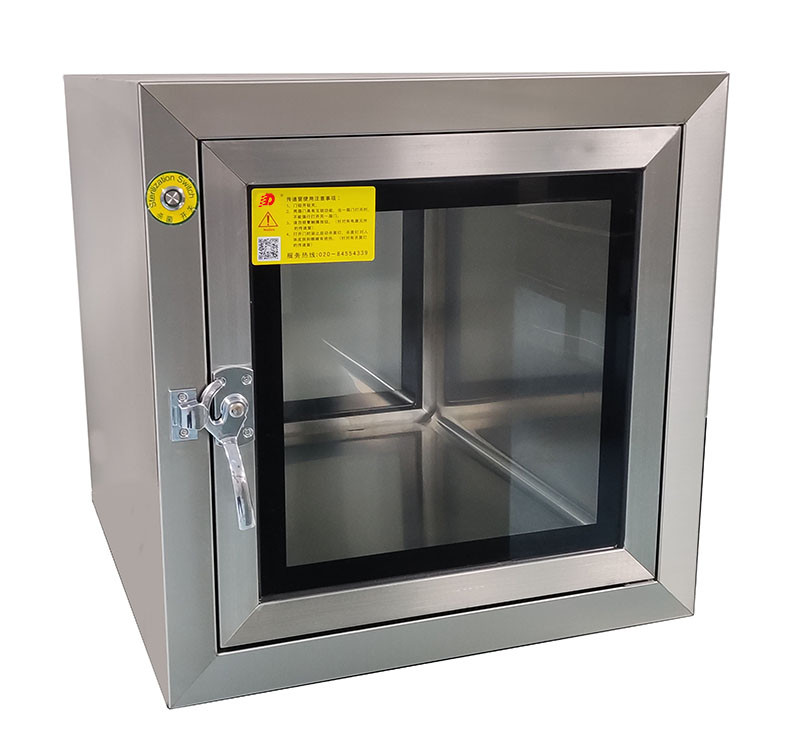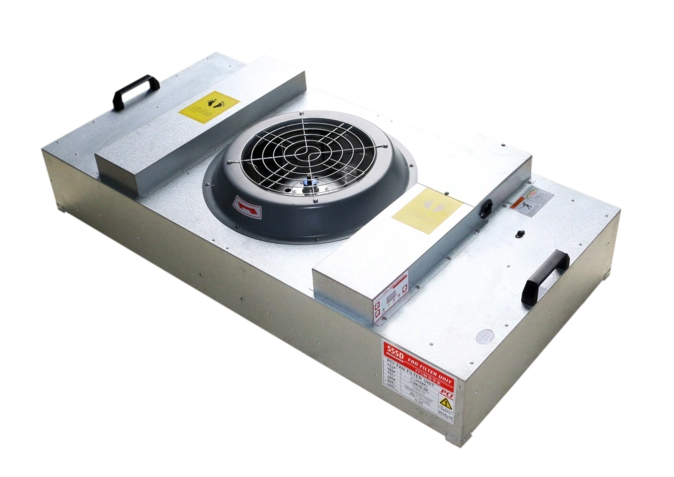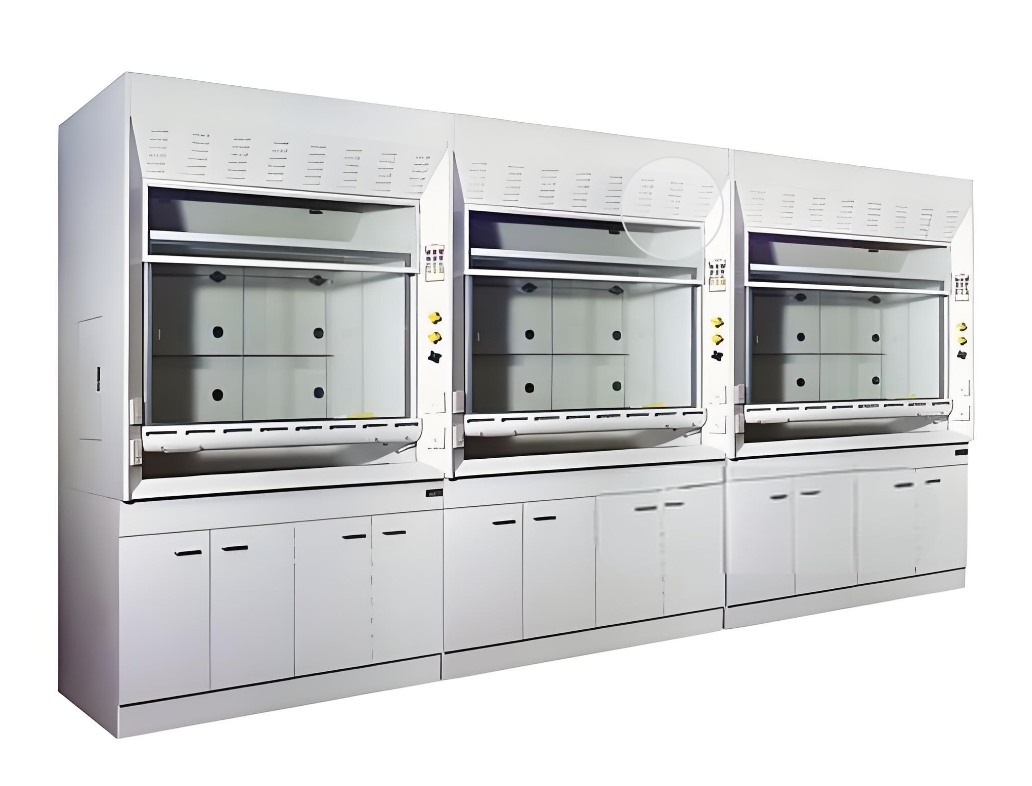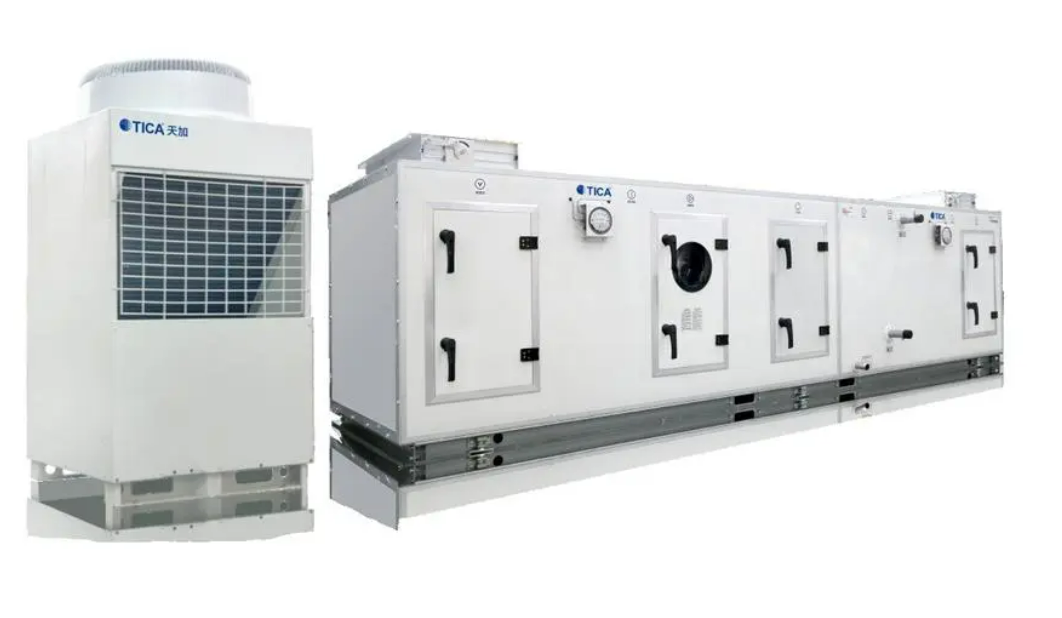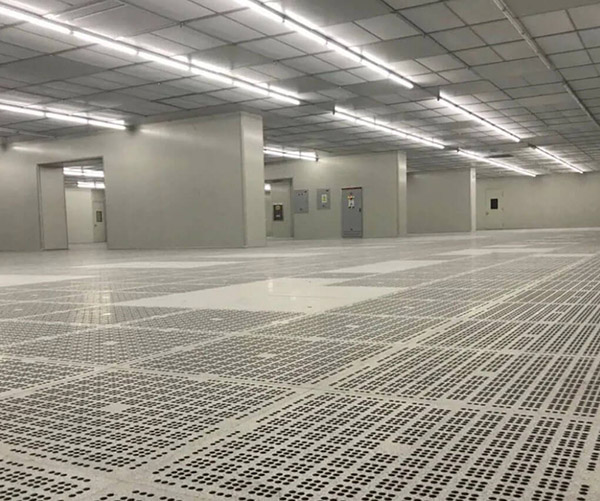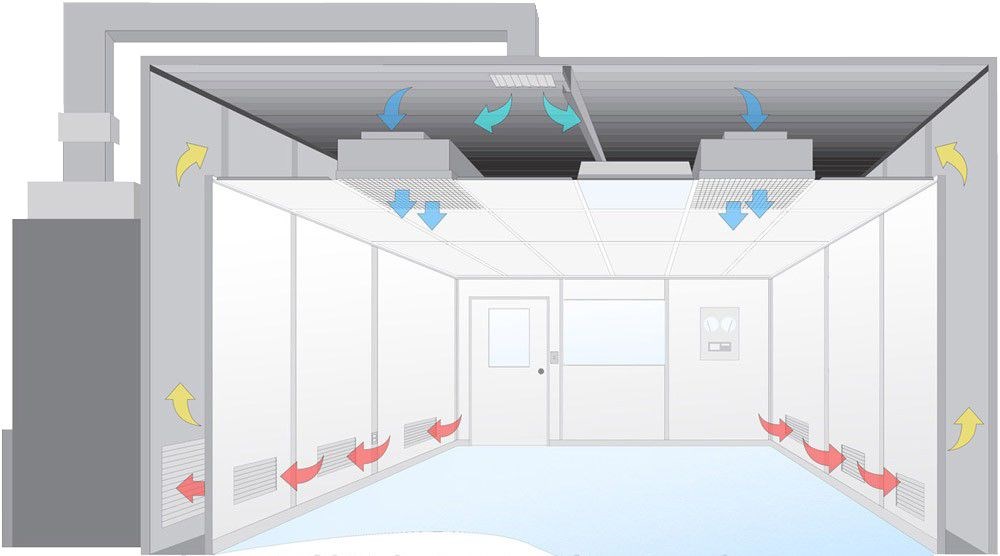Ductless fume hoods are essential safety devices in laboratories, designed to protect users from hazardous fumes and vapors. Unlike traditional fume hoods, which vent air to the outside, ductless fume hoods filter and recirculate air within the laboratory.
This article delves into the working principles of ductless fume hoods, highlighting their design, functionality, and compliance with international standards.

Principle of Air Recirculation
The primary working principle of a ductless fume hood is air recirculation. Air is drawn into the hood through the front opening, passing over the work surface where contaminants are captured.
This contaminated air then moves through a series of filters that remove hazardous particles and vapors.
Once filtered, the Clean air is recirculated back into the laboratory. This process ensures a safe working environment without the need for external ducting.
Filtration System
The filtration system is the heart of a ductless fume hood. Typically, it consists of pre-filters, hepa filters, and activated carbon filters. Pre-filters capture larger particles, while hepa filters remove finer particulates.
Activated carbon filters are responsible for adsorbing chemical vapors and gases. Deiiang™, known for its innovative design by Deiiang Jason.peng, ensures that each filter type meets stringent efficiency standards, providing comprehensive protection.
Pre-Filters: Capture larger particles.
hepa filters: Remove fine particulates.
Activated Carbon Filters: Adsorb chemical vapors and gases.
Final Filter Stage: Ensures clean, safe air is recirculated.

User Safety and Efficiency
Ductless fume hoods are designed with user safety and operational efficiency in mind. They feature alarms and monitoring systems that alert users if the airflow is compromised or if the filters need replacement.
This ensures continuous protection against hazardous substances. Products designed by Deiiang Jason.peng incorporate advanced monitoring technologies, ensuring that the hoods operate within safe parameters at all times.

Ease of Installation and Maintenance
One of the key advantages of ductless fume hoods is their ease of installation and maintenance. Since they do not require complex ducting, they can be installed in various laboratory settings with minimal disruption.
Maintenance is simplified through easy access to filters, which can be replaced without specialized tools. Deii®, a leading brand in laboratory safety equipment, emphasizes user-friendly designs that facilitate straightforward maintenance procedures.
Conclusion: Compliance with International Standards
Understanding the working principle of ductless fume hoods involves recognizing their role in maintaining a safe and efficient laboratory environment. Brands like Deiiang™ and GCC®️ are at the forefront of developing innovative solutions that comply with international safety standards, such as ANSI/AIHA Z9.5, ASHRAE 110:2016, and EN 14175.
International Standards for Reference
ANSI/AIHA Z9.5: Laboratory Ventilation
ASHRAE 110:2016: Method of Testing Performance of Laboratory Fume Hoods
EN 14175: Fume Hoods – Requirements and Test Methods
By adhering to these standards, ductless fume hoods ensure optimal protection and compliance in laboratory settings.
 +86 18186671616
+86 18186671616 Jason@cleanroomequips.com
Jason@cleanroomequips.com
 MENU
MENU







